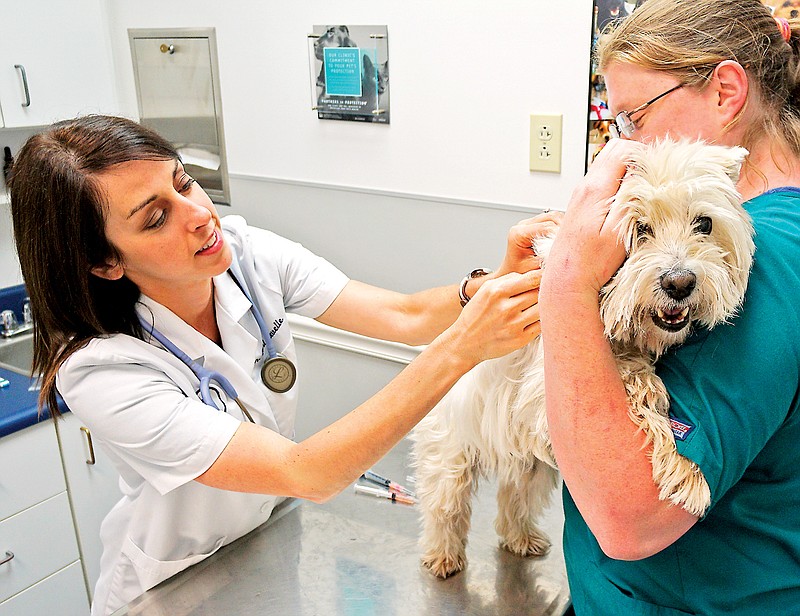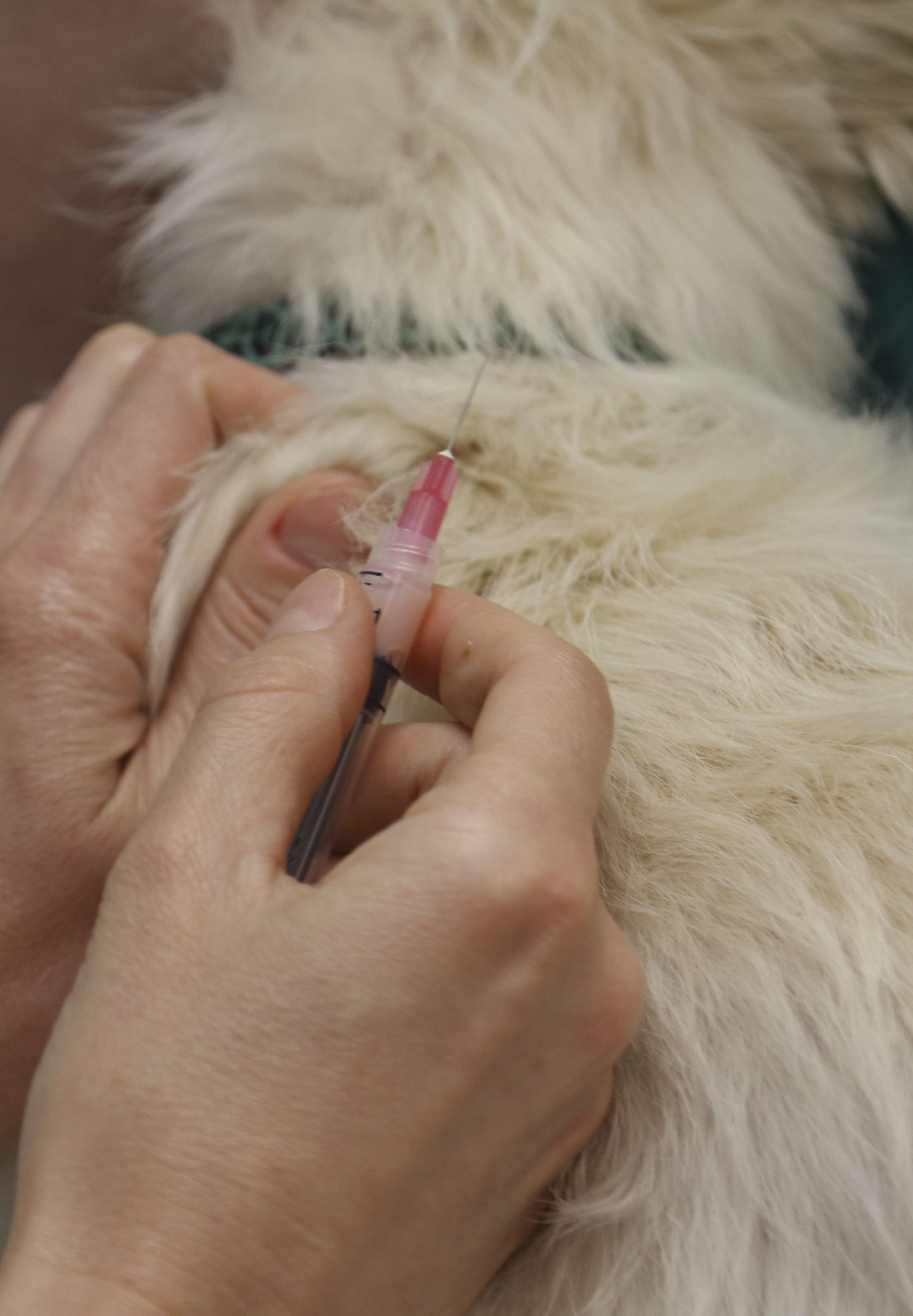RABIES FACTS
Any mammal can get rabies. The most common wild reservoirs of rabies are raccoon, skunks, bats, foxes and coyotes. Domestic mammals like cats, cattle and dogs are the most frequently reported household animals to get rabies. The rabies virus is transmitted through saliva or brain or nervous system tissue. Rabies can on be contracted by coming in contact with these specific bodily excretions and tissues. If exposed,wash wounds immediately with soap and water. If attacked by an animal, see a doctor, will decide if a rabies vaccination is needed.Source: Centers for Disease Control and PreventionREPORT SUSPICIOUS ANIMALS Anyone who sees a wild animal acting strange or overly friendly should contact the local county health department or the U.S. Department of Agriculture Wildlife Services at 1-866-4-USDAWS or 1-866-487-3297.
Georgia's Fannin and Pickens counties are the most recent in the north end of the Peach State to report confirmed cases of rabies that so far in 2015 have led authorities to euthanize two pet dogs and quarantine a pair of kittens in Fannin.
On April 14, a person living about five miles south of Blue Ridge, Ga., investigated a commotion outside and found a raccoon growling at a couple of kittens that lived there.
The resident shot the raccoon and environmental health officials confirmed the animal was carrying the deadly rabies virus. Then the kittens' owner had a choice, environmental health specialist Shannon Bradburn said. It wasn't likely the kittens had come in contact with the rabid raccoon.
But since the kittens weren't vaccinated, the owner could either agree to quarantine them where health officials could observe them, or have them put down. The owner chose to keep them, so they'll have to spend the next six months in a double-penned enclosure.
That was the third confirmed case this year in Fannin County, officials said. The first incident, on March 6, involved a fox found in a dog's yard in the McCaysville area; then on April 4, a raccoon attacked a dog in its pen in Morganton on Old Highway 76
Because they had not had their rabies vaccinations, both dogs were euthanized.
A dog belonging to a Pickens County woman survived its encounter April 11 with a rabid raccoon that tried to attack its owner, North Georgia Health District spokeswoman Jennifer King said Thursday.
She said a Yellow Creek couple was walking with their dog near some woods when a raccoon suddenly ran aggressively toward the woman's foot, King said.
The dog intercepted the raccoon before it reached the human's, and the husband beat the animal to death with a stick. Health officials confirmed the raccoon had rabies.
But thanks to up-to-date vaccinations, the couple's canine savior needed only a booster shot, King said.
Several cases of rabies have been confirmed in the Yellow Creek area over the past few years and the disease is not uncommon in the Blue Ridge Mountains, she said.
Tennessee has reported 10 rabies cases this year but none were in the Chattanooga region, said John F. Roman with the state Department of Health. Tennessee's problem wild animal is the skunk, though bats are frequent carriers, too.
Jordona Kirby, rabies field coordinator for the U.S.D.A.'s national rabies management program, said the federal agency is aiming to prevent the westward spread of the virus, predominantly the raccoon variant.
"Georgia is one of the top five states for rabies cases in the country," Kirby said. "It's really not that surprising, unfortunately."
The program includes distribution of vaccine-laden baits. The westernmost edge where baits are distributed runs roughly along the Appalachian Mountains from Alabama to West Virginia.
"Generally, the oral rabies vaccination program is targeted very strategically wherever the farthest westward," she said. "If you look at a map where these cases are occurring in Fannin and Pickens counties, they do fall to the east of the leading edge of rabies, which at this time is in Northeast Alabama."
Pet owners can help by keeping their animals vaccinated, Kirby said.
The Pickens County case illustrates the importance of vaccinating domestic animals, she said. That dog was protected with vaccine, and in turn protected its owner.
Dr. Candace Hadden, of the Animal Medical Center of Fort Oglethorpe, noted that spring is when most rabies vaccination clinics are kicked off.
"North Georgia will start clinics this weekend," she said.
Most clinics offer vaccinations for pet dogs and cats. People who have exotic animals should contact their veterinarian about available vaccinations.
Contact staff writer Ben Benton at bbenton@timesfreepress.com or twitter.com/BenBenton or www.facebook.com/ben.benton1 or 423-757-6569.

